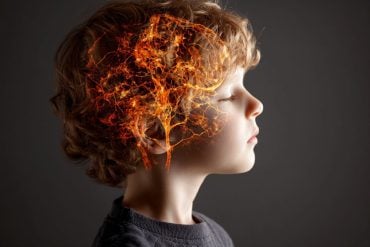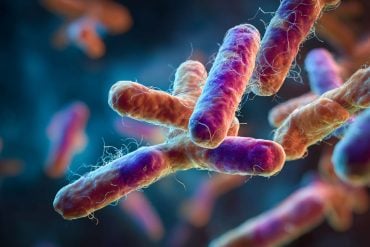Summary: Researchers made a significant discovery, identifying that inhibiting neurons related to stress responses may decrease alcohol consumption in individuals suffering from post-traumatic stress disorder (PTSD) and alcohol use disorder (AUD) simultaneously.
Their study used a rat model to demonstrate that reducing the activity of corticotropin-releasing factor (CRF) producing neurons in the central amygdala lessens alcohol intake without affecting trauma-related anxiety. This research not only elucidates the intricate link between stress, trauma, and alcohol use but also opens up new avenues for treating individuals with comorbid PTSD and AUD by potentially targeting specific neural pathways involved in stress-induced drinking behaviors.
Key Facts:
- Comorbidity of PTSD and AUD: Individuals with PTSD are significantly more likely to develop AUD, underscoring the need to understand and treat these conditions together.
- CRF’s Role in Alcohol Consumption: The study highlights CRF, a neuropeptide in the central amygdala, as a critical factor in regulating alcohol use in response to stress, without directly influencing anxiety levels.
- Future Directions for Treatment: By identifying the role of CRF-producing neurons in alcohol consumption among those with PTSD and AUD, the research suggests targeting these neurons could be a strategy for developing novel therapeutic interventions.
Source: Scripps Research Institute
Neuroscientists at Scripps Research have found that inhibiting neurons involved in the body’s stress response may reduce alcohol consumption in people who have both post-traumatic stress disorder (PTSD) and alcohol use disorder (AUD)—even if they still experience trauma-related anxiety.
The findings were published March 21 in Molecular Psychiatry.
These discoveries are helping untangle the complex role that stress and trauma play in neurological disorders like PTSD and AUD, while also informing the development of new treatment options for people who experience both these conditions simultaneously.

“Traumatic experiences in life can increase vulnerability to alcohol drinking and exacerbate symptoms of depression and anxiety,” says senior author Marisa Roberto, PhD, the Schimmel Family Endowed Chair and vice chair of the Department of Molecular Medicine.
“Alcohol is often used as a coping strategy to blur trauma-associated memories and diminish negative emotional states.”
PTSD and AUD are often comorbid, so understanding their underlying neurological mechanisms in tandem is crucial. About 6% of the U.S. population will develop PTSD at some point, according to the U.S. Department of Veterans Affairs, and people with PTSD have a 30% lifetime prevalence of AUD. However, few pharmaceutical therapies exist to treat the disorders together.
Roberto’s team previously created a model in which rats develop symptoms similar to what people with comorbid PTSD and AUD experience: aggression, anxiety, hyperarousal, disturbed sleep and increased alcohol consumption. In this new study, they compared these rats with those that did not exhibit anxiety-like behaviors by giving each group access to both alcohol and water.
Compared with unstressed rats, those that were stressed exhibited higher levels of peripheral stress hormones, and various genes in the central amygdala, including one that encodes for the neuropeptide known as corticotropin-releasing factor (CRF), were also shown to be altered in stressed rats.
CRF exists in the central amygdala, a part of the brain that’s altered by excessive drinking and is responsible for processing fear. Stress causes neural release of CRF, which plays a key role in regulating physiological responses to the emotion. Prior research with rats has shown that inhibiting neurons that express CRF reduces alcohol consumption.
After identifying that the stressed rats expressed higher levels of CRF in the amygdala, the researchers then inhibited CRF-producing neurons in the stressed group. As expected, they found that this decreased alcohol consumption—but it didn’t mitigate anxiety as they initially thought it would.
“We were surprised to see that the anxiety phenotypes were not reduced when silencing CRF expressing neurons in the central amygdala, suggesting other neuropeptide co-factors might be at play,” says the study’s first author, Bryan Cruz, PhD, a postdoctoral fellow at Scripps Research.
The results suggest that CRF plays a role in alcohol use among those with comorbid PTSD and AUD. Still, the researchers conclude that future studies need to disentangle the neurological mechanisms behind stress-related alcohol consumption and trauma-induced anxiety.
“Understanding the neurobiology of PTSD-AUD is key for development of future intervention strategies for this devastating comorbidity,” says Roberto. “We speculate that other neuropeptides with anti-stress properties may be involved in PTSD-AUD.”
Funding: This work and the researchers involved were supported by funding from the National Institute on Alcohol Abuse and Alcoholism (grants AA027700, AA013498, P60 AA006420, AA017447, AA021491, AA029841, AA028879, AA029498, K99 AA026638, K99 AA030609, T32 AA007456, and AA02675) and the Schimmel Family Chair and Pearson Center for Alcoholism and Addiction Research.
In addition to Cruz and Roberto, authors of the study, “Chemogenetic inhibition of central amygdala CRF-expressing neurons decreases alcohol intake but not trauma-related behaviors in a rat model of post-traumatic stress and alcohol use disorder,” are Valentina Vozella, Vittoria Borgonetti, Ryan Bullard, Paula C. Bianchi, Luisa B. Bertotto, Michal Bajo, Roman Vlkolinsky, and Eric P. Zorrilla of Scripps Research; Dean Kirson of The University of Tennessee Health Science Center; and Robert O. Messing of The University of Texas at Austin.
About this AUD and PTSD research news
Author: Scripps Research Communication Office
Source: Scripps Research Institute
Contact: Scripps Research Communication Office – Scripps Research Institute
Image: The image is credited to Neuroscience News
Original Research: Open access.
“Chemogenetic inhibition of central amygdala CRF-expressing neurons decreases alcohol intake but not trauma-related behaviors in a rat model of post-traumatic stress and alcohol use disorder” by Marisa Roberto et al. Molecular Psychiatry
Abstract
Chemogenetic inhibition of central amygdala CRF-expressing neurons decreases alcohol intake but not trauma-related behaviors in a rat model of post-traumatic stress and alcohol use disorder
Post-traumatic stress disorder (PTSD) and alcohol use disorder (AUD) are often comorbid. Few treatments exist to reduce comorbid PTSD/AUD. Elucidating the mechanisms underlying their comorbidity could reveal new avenues for therapy.
Here, we employed a model of comorbid PTSD/AUD, in which rats were subjected to a stressful shock in a familiar context followed by alcohol drinking. We then examined fear overgeneralization and irritability in these rats.
Familiar context stress elevated drinking, increased fear overgeneralization, increased alcohol-related aggressive signs, and elevated peripheral stress hormones. We then examined transcripts of stress- and fear-relevant genes in the central amygdala (CeA), a locus that regulates stress-mediated alcohol drinking.
Compared with unstressed rats, stressed rats exhibited increases in CeA transcripts for Crh and Fkbp5 and decreases in transcripts for Bdnf and Il18. Levels of Nr3c1 mRNA, which encodes the glucocorticoid receptor, increased in stressed males but decreased in stressed females.
Transcripts of Il18 binding protein (Il18bp), Glp-1r, and genes associated with calcitonin gene-related peptide signaling (Calca, Ramp1, Crlr-1, and Iapp) were unaltered. Crh, but not Crhr1, mRNA was increased by stress; thus, we tested whether inhibiting CeA neurons that express corticotropin-releasing factor (CRF) suppress PTSD/AUD-like behaviors.
We used Crh-Cre rats that had received a Cre-dependent vector encoding hM4D(Gi), an inhibitory Designer Receptors Exclusively Activated by Designer Drugs. Chemogenetic inhibition of CeA CRF neurons reduced alcohol intake but not fear overgeneralization or irritability-like behaviors.
Our findings suggest that CeA CRF modulates PTSD/AUD comorbidity, and inhibiting CRF neural activity is primarily associated with reducing alcohol drinking but not trauma-related behaviors that are associated with PTSD/AUD.






